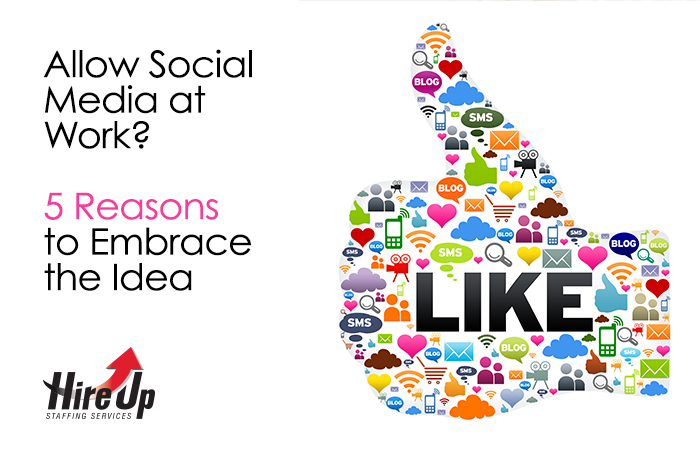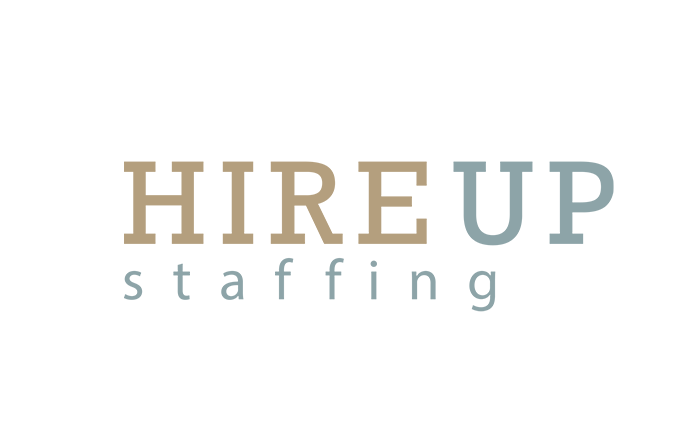Hire Up Kicks Off Our 12 Days of Giving!
The holiday season is finally here and that means it’s time to kick off our 12 Days of Giving! For those of you who didn’t get to experience the magic last year, I will give you a quick update! Our entire team LOVES to give back to the community. Especially to individuals, companies, and organizations who are doing amazing things for others. Our collective love for philanthropy at Hire Up inspired our team to start the 12 Days of Giving! We’re looking to make this year (our 3rd year) the best one yet.
The main goal here is to help 12 different companies in the Valley boost their reach and charity’s overall success. For each of the 12 causes, our Hire Up elves will be delivering generous donation of our own – one for each of the 12 Days of Giving. Whether these companies are collecting coats, canned food, toiletry items, or gifts for kids, we’re here to help and invite you to do the same!
We chose the top 12 most inspiring causes in the Central Valley to support and we’re excited to say day 1 kicks off tomorrow. Be sure to follow us on Facebook and Instagram to see all of the good people in your community are doing, to check out our Hire Up elves at work, and to stay updated on how you can make a difference!
New Visalia Office Open House! Thursday September 14 ~ 4pm
Summer Sizzle Client Appreciation to Win Fresno State Tickets ~ Nov 4
Tailgate Party on November 4, starting at 2pm!
Any client who hired a candidate through our service November 1st, 2016 to October 31, 2017 will receive an exclusive invite to our tailgating party with free food, dessert and drinks, as well as fun games with prizes.
As a thank you for your business, all our Summer Sizzle top clients will receive 6 Fresno State Bulldog Football tickets to attend the game after the tailgating.
**Top clients are defined as any company who bills more than 1,500 hours or bills any direct hire placement over a certain dollar amount from June 1, 2017 – October 31, 2017. Please call the local Hire Up office for more details.in Big During Summer Sizzle!
We're Moving!!
Leaders Love to Learn: 5 Important Habits for Lifelong Learning

There’s always that misinterpretation of leaders as dictators, where in reality a good leader is just as dedicated to a craft as the rest of their group. Leaders commit themselves to lifelong learning – an ongoing and self-motivated pursuit for knowledge and improvement, whether for personal or professional reasons.
It sounds easy enough, right? Here are seven habits to keep in mind as you try to pursue growth as a leader dedicated to lifelong learning:
1. Read. Make it a daily habit, if possible. It doesn’t matter if you read books or blogs, newspapers or magazines, simple articles or everything from cover to cover. It’s ideal to read about leadership traits and other business-related things, but it’s not a bad idea either to read about your hobbies and interests.
2. Write. It’s okay to write in a journal or private blog, but if you can then try to write publicly. This is a great way to articulate and share what you have been learning. In fact, it may possibly inspire others to follow your lead!
3. Create and maintain peer relations. You will always benefit from sharing thoughts and ideas with like-minded people. No one can mature on their own, so have a simple lunch with friends and coworkers in similar positions. Throw ideas around, and benefit from each others’ knowledge.
4. Do personal coaching. It is just as important to share with peers as it is to share with those who look up to you. If time and opportunity allows, do it as personal as possible, such as one-on-one coaching. If not, try to hold a meeting regularly where your team can interact with you in a manner that’s not intimidating for them.
5. Get a mentor (or mentors). In the same way, you will also need at least one other person to guide you, a leader that will teach you to grow and develop in ways you cannot do on your own, and you stay humble as well. You become a great leader when you have someone’s lead you can follow.
It may seem like a lot of hard work at first, but all things worth doing are. If you have a passion for leadership, you will always find time and effort for it. Eventually, these habits become second nature to you and you will have developed a penchant for lifelong learning. This is especially the case if you want to make the best out of your company and lead people into working well and happily.
Our firm holds free educational client luncheons on a regular basis. Follow us on Facebook and on our blog to get updates about these and our other upcoming events!
No Degree? No Problem! Find Work Through a Staffing Agency
A college degree doesn’t make anyone a shoo-in for a job. Inversely, a lack of it cannot stop a person from pursuing a career of their dreams either. There are classic examples of success stories about people who never graduated from college (or attended it, for that matter) yet still were able to make careers of themselves.
It’s What You’ve Done and What You Can Do That Ultimately Matters
While most jobs today still require a college degree, it often helps to have a staffing agency assist you in your job hunt. Experts now say that many companies would gladly hire people with a solid resume showcasing a long-term professional background and results.
Employers often want to know off the bat if they can get the right person for the job, and not necessarily a piece of paper with a title. Companies now often look for those who can provide solutions and results, so they’re willing to consider those with a sense of accomplishment and a proven track record.
A staffing agency can help you create a carefully constructed resume that would highlight their best accomplishments, as well as training or certifications received, which would have to make up for the absence of a college degree.
It’s Also Who You Know
Job hunters often don’t realize that it’s very important to know a lot of people. While some are astoundingly good at networking on their own, a staffing agency can help even the most clueless ones reach whomever they need to in order to land a job.
As a matter of fact, there are plenty of jobs out there today that are not posted online. It may be tiring to physically go from building to building, city by city, just to land interviews. With the help of a staffing agency, however, it’s much easier for a person to reach a wider network of potential employers. Staffing agencies can match a person’s resume to the right companies, big or small, with a few phone calls or at the click of a button.
It’s Not the Be All and End All of Careers
There are a lot of jobs out there that don’t even require a college degree! Such examples are: dental hygienist, web developer, paralegal secretary, insurance agent, industrial machine repairer, cosmetologist or hair stylist, wholesale sales representative, electrical technician, teacher’s aide, and so much more. The possibilities are endless. A staffing agency can cross-check your skillset and recommend you to a number of different job opportunities that suit you, which you might not have considered or even heard of.
If you are in the Central Valley and looking for a new career or even just a new job, call us at (559)579-1331. One of our staffing professionals will be available to help you 5 days a week! To see what types of positions we have open, CLICK HERE
Allow Social Media at Work? 5 Reasons to Embrace the Idea

There are still companies today that are very strict when it comes to Facebook, Twitter, LinkedIn, and other social media sites. Often, they ban access to those websites, most notably during core work hours. Usually, the reasoning behind these strict policies is that employees won’t be able to focus on their jobs. However, newer studies are challenging this notion. Here are 5 reasons companies should embrace the idea of allowing social media at the workplace:
1.) It’s an old idea that just can’t be avoided. Unlike in the past when it was traditional for people in charge to micromanage and outlaw things they deem unacceptable, today’s 21st century workplace is mostly democratized.
2.) It’s self-defeating. In all honesty, most people nowadays own a smart phone, tablet, or some sort of portable device that connects to social media. Data plans and wifi hotspots make it nearly impossible for a totalitarian-style office, as workers can take a peek at their social updates while on a break or in the restroom.
3.) Social media is the new water cooler. Essentially, rather than old school conversations at the water cooler or taking a coffee break, people today resort to gadgets to get news, keep up with co-workers and friends, make social arrangements, and all other things. We live in a social media rich environment, which has both its positives and negatives. Banning social media, then, is like banning people from engaging in conversation with people at work. Imagine outlawing laughing or talking… that’s how greatly it can affect the workforce.
4.) It makes us more productive. Believe it or not, social media makes people open their minds, allowing us to group-solve big problems and yet also think independently. The fact that people are “watching” or knowing what you’re up to makes us change our minds for the better. In essence, banning social media from the workplace can make a person feel more empowered to seek employment with a more open-minded and innovative network of people or companies.
5.) It enhances our multitasking skills, which is beneficial for workers. In the same way social media encourages the idea of staying connected and handling a lot of things at once, the workplace needs such skills as well. In the past, people sat at work all day and went home to proceed with leisure. Today, both work and play are interconnected. So, occasionally posting to social media sites doesn’t mean a person’s not working or isn’t productive – it only means their brain is temporarily focused on something other than their job.
The Do’s and Don’ts of Asking for a Raise

So you need more money, but you’re not sure how to do it? Read on for tips on how to properly ask for a raise. This process requires careful preparation, impeccable timing, impressive skills, and a backup plan (just in case).
It’s important to remember never to base your request just because of personal issues. People who successfully get a raise are superstar workers – they are the best of the best, the elite when it comes to doing their jobs exceptionally well.
Do: Ask for a Raise
It’s nearly impossible to get a raise without asking for it. Speak up when you feel that you have a case and the timing is right. Chances are, if you do deserve it, they will give it to you.
Don’t: Threaten Your Boss with Another Job
It’s all about proper negotiation. If you start threatening a company that you’re leaving because there’s “another job waiting” (whether it’s true or not), you might as well state the reason you’re leaving is because your boss is probably going to give you the boot anyway. No leadership in their right mind would ever make a counter offer because they were threatened an employee is taking another job.
Do: Find Out Your Value
Figure out what you’re worth, even if it means using online resources, salary surveys, cost of living comparisons, or even going on interviews elsewhere. If it’s possible and ethical depending on the company you’re with, look at compensation rates within your organization as well. Take a look at the job market and see how similar positions or people with like skills get compensated.
Don’t: Argue That Your Co-Worker Earns More
To begin with, most companies keep salaries confidential. And the main point? Your pay is a reflection of your own work, so therefore it wouldn’t make sense for your boss to pay you more based on your co-worker’s performance.
Do: Know Your Number
After all the research, consider all the factors in your life and figure out what you believe is a fair amount of money to ask for. Think of your current salary, what you found out about the job market, and how you’re living. Again, never mix personal issues when you do this – sharing your sob story such as needing a raise because you can’t make rent or you need to cover other personal expenses isn’t going to fly.
Don’t: Ask for Too Much
The bottom line is you have to do your research. Know what your value is! In addition, it’s unethical to just tell your boss about your market research as well. Remember, it’s not the market paying you – your company is.
Do: Be Confident
Be confident, not cocky. Arrogance just won’t work. Confidence, on the other hand, is appealing and assertive. It lets the boss know you believe in yourself and your skills enough, and that you’re around because you love what you do and are grateful for it. It shows that you care about the organization and your boss, and you want to witness and continue to be a part of the company’s success.
Don’t: Ask for a Raise After a Bad Performance
Performance reviews are there for a reason, so it would be seriously strange to ask for a raise around the time your boss called you in to discuss poor performance ratings. Stick to your accomplishments. Companies would gladly pay more to people who add great value to the company.
Top 10 Skills Expected By Employers – Do You Have Them?

Based on a number of surveys on the skills required by graduates undertaken by Microsoft, Target Jobs, the BBC, Prospects, NACE and AGR and other organizations, here is our summary of the skills which were most often deemed important to employers:
1.) Verbal Communication – Able to express your ideas clearly and confidently in speech.
2.) Team Work – Work confidently within a group.
3.) Commercial Awareness – Understand the commercial realities affecting the organization.
4.) Analyzing and Investigating – Gather information systematically to establish facts & principles. Problem solving.
5.) Initiative and Self Motivation – Able to act on initiative, identify opportunities & proactive in putting forward ideas & solutions.
6.) Drive – Determination to get things done. Make things happen & constantly looking for better ways of doing things.
7.) Written Communication – Able to express yourself clearly in writing.
8.) Planning and Organizing – Able to plan activities & carry them through effectively.
9.) Flexibility – Adapt successfully to changing situations & environments.
10.) Time Management – Manage time effectively, prioritizing tasks and able to work to deadlines.
All of the above qualities are very important in the modern workplace and are referred to as “Soft Skills”. “Soft Skills” are a cluster of personal qualities, habits, attitudes, and social graces that make someone a good employee and compatible to work with. Research suggests that they can be just as important an indicator of job performance as hard skills, which are teachable abilities that can be defined and measured. The best information you can take from this article is that while schooling and work experience is important to employers, being reliable, self motivated, smart, adaptable, and personable are all equally as important!
If you are looking for a job or an employee, be sure to contact us at (559)579-1331. We are here to help and look forward to meeting you!
How To Develop Successful Team Building Exercises At Work
At some point in our careers we all have been involved in team building exercises. Too often, managers plan an activity with no real thought or goal in mind. This tends to be a waste of time – and managers risk losing the team’s respect when they plan an exercise that doesn’t actually help those involved. Hire Up Staffing thought it would be a great idea to show you what to consider when planning successful a team event.
The most important step when planning a team-building exercise comes at the very beginning: you must start by figuring out what challenges your team faces. Only then can you choose exercises that will be effective in helping them work through these issues.
Spend time thinking about your team’s current strengths and weaknesses. Ask yourself these questions to identify the root of any problems:
- Are there conflicts between certain people that are creating divisions within the team?
- Do team members need to get to know one another?
- Do some members focus on their own success, and harm the group as a result?
- Does poor communication slow the group’s progress?
- Do people need to learn how to work together, instead of individually?
- Are some members resistant to change, and does this affect the group’s ability to move forward?
- Do members of the group need a boost to their morale?
Improving Communication
- Back-to-Back Drawing – Divide your group into pairs, and have each pair sit on the floor back to back. Give one person in each pair a picture of a shape, and give the other person a pencil and pad of paper.Ask the people holding the pictures to give verbal instructions to their partners on how to draw the shape – without actually telling the partners what the shape is. After they’ve finished, ask each pair to compare their original shape with the actual drawing, and consider the following questions:
- How well did the first person describe the shape?
- How well did the second person interpret the instructions?
- Were there problems with both the sending and receiving parts of the communication process?
- Survival Scenario – This exercise forces your group to communicate and agree to ensure their ‘survival.’ Tell your group that their airplane has just crashed in the ocean. There’s a desert island nearby, and there’s room on the lifeboat for every person – plus 12 items they’ll need to survive on the island. Instruct the team to choose which items they want to take. How do they decide? How do they rank or rate each item?
Eliminating Stereotypes and “Labeling”
- Stereotype Party – This is a fun exercise for a medium-sized or large group. Write on nametags many different ‘personality types (see the list below), and pin or tape one tag to each person’s back. Don’t show people which tag is on their back – they’ll be able to see everyone else’s tag, but not their own.Now, ask each person to figure out which personality type is on his or her back by asking stereotype-based questions of other people – “Am I a man?” “Am I an athlete?” “Am I an entertainer?” and so on.
Allow group members to answer only yes or no, and encourage participants to ask questions to as many different people as possible.
Here are some personality types you could consider:
- Auto mechanic.
- Olympic medalist.
- Professor.
- Fast-food restaurant worker.
- Postal worker.
- Movie star.
Building Interdependence and Trust
- Human spring – Ask group members to stand facing each other in pairs. Their elbows should be bent, with their palms facing toward each other. Instruct them to touch their palms together, and gradually start leaning toward each other, so that they eventually hold each other up. Then, instruct everyone to move their feet further and further back, so that they have to depend solely upon their partners to remain standing.
- Mine field – This is a great exercise if you have a large room or outdoor field. Set up a ‘mine field’ using chairs, balls, cones, boxes, or any other object that could potentially be an obstacle and trip someone up. Leave enough space between the objects for someone to walk through.Next, divide your group into pairs. Pay attention to who you match with whom. This is a perfect opportunity to work on relationships, so you might want to put together people who have trust issues with each other.
Blindfold one person, the ‘mine walker’ – this person is not allowed to talk. Ask his or her partner to stay outside the mine field, and give verbal directions, helping the mine walker avoid the obstacles, and reach the other side of the area.
Before you begin, allow partners a few minutes to plan how they’ll communicate. Then, make sure there are consequences when people hit an obstacle. For example, perhaps they have to start again from the beginning.
Key Points
For team building to be effective, leaders must first identify the issues their group is facing. Then they can plan activities to address these challenges directly – and make sure that the team will actually gain some benefits from the event. Keep competition out of the exercises, and aim to make team building part of the daily corporate culture, instead of a once-a-year event.









